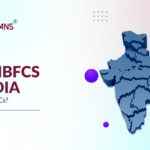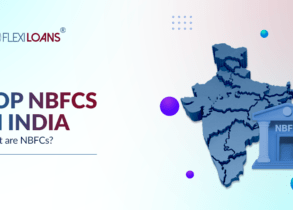Current vs. Savings: Does My Account Impact My Business Loan?
Oct 23, 2022

There’s a common misconception that a business must have a savings account to get approval for a small business loan. However, when you apply for business loan the type of account your business has—savings or current—doesn’t impact your loan eligibility.
Rather, lenders will look at your business’s financial history and cash flow to determine whether or not you’re eligible for a loan. Lenders will also consider other factors such as your credit score, business revenue, and time in business when you apply for business loan.
Savings and current accounts are useful for businesses, but they serve different purposes. This article will compare savings and current accounts to help you decide which is right for your business that too when you apply for business loan.
What is a Savings Account?
A savings account is a type of bank account where you can deposit money and earn interest on your balance. Savings accounts usually require a minimum balance, and you may be charged fees if you fall below this amount.
Most savings accounts have withdrawal limits, meaning you can only make a certain number of monthly withdrawals. This is to discourage people from using their savings as checking accounts, which permit frequent withdrawals.
The main purpose of a savings account is to help the lender grow your money over time. The interest you earn on your deposited funds can add up, making your savings account an essential tool for long-term financial planning.
How Does Saving Account Affect Business Loans
While your current account provides insight into your day-to-day financial management, your savings account can give lenders an indication of your long-term financial planning.
If you have a good amount of money saved, this will show lenders that you’re able to control your spending and put money aside for the future. This can help demonstrate that you’re likely to be able to repay a business loan without any problems.
On the other hand, if you don’t have much (or any) money saved, this could raise concerns with lenders about your ability to repay a loan. In some cases, having no savings at all may result in your loan application being rejected outright.
Finally, if you have a lot of money in your savings account, you will likely be able to secure a larger loan amount. This is because lenders will view you as more financially stable, and thus, they will be more willing to lend you a more significant amount of money.
What is a Current Account?
A current account is a type of bank account where you can deposit and withdraw money as needed. Unlike savings accounts, current accounts don’t usually earn interest.
Current accounts also have fewer withdrawal limits than savings accounts. This makes them more convenient for businesses that need to make frequent transactions.
The main purpose of a current account is to give business owners a place to manage their day-to-day finances. Current accounts are ideal for businesses that need to make regular payments, such as payroll or rent.
How Does Current Account Impact Business Loans
Your current account (or, if you have one) is one of the first places lenders will look when assessing your business loan application. This is because your current account provides insight into your day-to-day financial management and can give lenders an indication of how well you manage your finances.
For instance, if you have a good track record of managing your current account responsibly, this will count in your favour when applying for a business loan. On the other hand, if you have a history of overdrafts or missed payments, this could negatively impact your application.
In addition to assessing your financial management skills, lenders will also look at your current account balance when considering your loan application. If you have a healthy balance in your account, this will show lenders that you’re able to manage your finances effectively and are less likely to default on your loan repayments.
However, if you have a low balance or are regularly dipping into your overdraft, this could be seen as a red flag by lenders and could result in your loan application being rejected.
Comparing Savings Accounts and Current Accounts for Business
Now that we’ve reviewed the basics of savings and current accounts, let’s compare them side-by-side for your business:
| Minimum balance | Most savings accounts require a minimum balance, while current accounts usually don’t. |
| Interest rates | Savings accounts earn interest on your deposited funds, while current accounts don’t. |
| Withdrawal limits | Savings accounts have withdrawal limits, while current accounts usually don’t. |
| Transaction fees | Savings account transaction fees are usually lower than current account fees. |
| Ease of use | Current accounts are typically easier to use than savings accounts. This is because they have fewer restrictions on withdrawals and transactions. |
How to get business loan without getting impacted by my current saving account?
There are a few things you can do to help ensure your current and savings account don’t hurt your business loan application:
• Keep your current account in good standing by making all payments on time and avoiding overdrafts where possible.
• Try to maintain a healthy balance in your current account so that lenders can see you’re able to manage your finances effectively.
• If you have a savings account, make sure it has a good amount of money in it so that lenders can see you’re capable of long-term financial planning.
• Make sure you understand how your current and savings account will be viewed by lenders before you apply for business loan. This way, you can be prepared to explain any negative aspects of your financial history.
By following these tips, you can help ensure your current and savings account don’t negatively impact your business loan application.
What Else Does a Lender Consider When Reviewing a Loan Application?
When you apply for a business loan online, the lender will consider several factors in addition to the balance in your savings and checking accounts. These include:
Your credit score: This is one of the most important factors lenders consider when reviewing a loan application. Your credit score is a measure of your financial health and gives lenders insights into your ability to repay a loan. The higher your credit score, the better your chances of being approved for a loan with favourable terms.
Your business history: Lenders will also want to see that you have a history of running a successful business. This includes factors like how long you’ve been in business, your revenue, and whether you have any outstanding debts.
Your collateral: Many lenders will require collateral before approving a loan. This could include property, equipment, or even the funds in your business savings account. The amount of collateral you’re required to provide will depend on the lender and the type of loan you’re seeking.
So, Which Type of Account is Right for Your Business?
This answer depends on your specific needs. If you’re looking for a place to grow your money over time, a savings account is a good option. If you need a place to manage your day-to-day finances, a current account is a better choice.
You might also consider opening both types of accounts for your business. This way, you can take advantage of the benefits of each. For example, you could use your savings account to grow your emergency fund and use your current account to manage your regular expenses.
No matter which type of account you choose, remember to shop around and compare interest rates and fees before making a decision. The right bank account can save you time and money, so it’s worth taking the time to find one that meets your needs.
Key Takeaway
As you can see, there are several different ways your current and savings accounts can impact your business loan. It is important to keep these factors in mind when you are apply business loan, as they can have a significant impact on the terms of your loan. Are you looking for a flexible loan option? Look no further than FlexiLoans! We offer Business loans, MSME loan online and more, with repayment terms that fit your needs. Plus, our online application makes it easy to get started. So now you know how to get business loan? Apply today!









